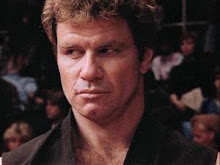Today in class we completed the following assignment:
Montana 1948-pgs 115-125 (20pts)
1. On pages 115-117, David's grandfather arrives with his grandmother to demand Frank's release. Here's a question; why do you think he brings his wife along, since she says almost nothing? (In fact, even David notices her failure to claim Frank as her son....)
2. Regarding the same scene, on page 116, David's father says that "This isn't about family....It's a legal matter," to which his father replies, "Bull----. Then why have you got him locked up here and not over in the jail?" Is his grandfather correct? Who is winning this argument?
3. Assess the way David's grandfather treats his father in general in this scene.
4. On page 116, David is briefly afraid that his grandfather is going to pull a gun, so afraid in fact that he cries out. Instead, his grandfather produces a cigar. Apart from the obvious sexual symbolism (a cigar is another version of a gun, a male phallus), what else does it signify?
5. David's grandfather says to his father on page 119, "That ----ing uniform. If I could have gotten you in one, maybe we wouldn't have this problem." This is obviously an oversimplification of the situation, but it shows a great deal about grandfather Hayden's logic. He is accusing his son of failing to be a good soldier. What does this mean? What does a soldier do? How has Wesley Hayden failed to live up to this definition?
6. Consider also Grandfather Hayden's remarks on the following pages, beginning with "What the hell am I supposed to think?" and concluding with, "Is that why I gave you that badge?" What sort of authority is his grandfather claiming? How far does he believe his will to extend over others?
7. On page 121, David reminds us that he's listening to the whole conversation through the heating ducts, and suddenly realizes that his Uncle Frank is probably doing the same thing. Then he has a realization, more eerie and profound still, that his Uncle could, at this moment, speak directly to him without being heard by anybody in the living room. What do you make of this? Why does this possibility concern him so much?
8. On page 123 David comes downstairs and sees his mother and father in the kitchen. Have we seen this scene before in the novel? Where? And what do you make of David's assertion, made on page 124, that "this was the moment I knew my father would die someday"? In what sense is his father's mortal nature imbedded in the scene?
9. On page 124, David grieves for his horse, Nutty. Why is this grief so acute for him? What does the horse represent to him? What, beyond the companionship of a responsive animal, is being lost? (An additional connection you can make: on page 16, we learned that David's father's limp is caused by an accident with a horse when he was 16. Consider this as you fathom the metaphoric nature of horses in the novel.)
Tuesday, October 21, 2008
Subscribe to:
Post Comments (Atom)


No comments:
Post a Comment